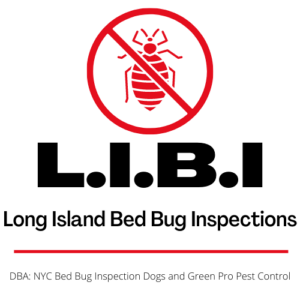Bed bugs are elusive, troublesome pests. They invade our homes, our workplaces, and our public spaces. While they don’t transmit diseases, their bites can lead to itching, inflammation, and even allergic reactions in some individuals.
If you’ve been bitten by bed bugs prompt treatment can help to relieve symptoms and prevent potential complications. Here are some practical tips for treating bed bug bites effectively.
Identify the Bites
Before you can treat the bites you need to make certain they’re caused by bed bugs. Bed bug bites typically appear as small, red, itchy bumps. They often appear in clusters or in a line on exposed skin. Most commonly on the arms, legs, neck or face. If you find that you’re regularly waking up with new bites, you should carefully inspect your bedding and mattress for signs of bed bugs – such as live bugs, eggs, or rust colored stains.
Wash the Affected Area
The first step in treating a bed bug bite is to clean the affected area with soap and water. Washing the area helps reduce the risk of infection and removes any allergens or irritants that may exacerbate the itching. Use a mild soap to avoid further irritation of the skin and gently pat the area dry using a clean towel.
Apply a Cold Compress
Cold compresses can help reduce any swelling associated with bed bug bites. It will also help to relieve any itching. Wrap some ice in a clean cloth or use a chilled gel pack. Apply to the affected area for about 10 or 15 minutes. Cold compresses work to constrict blood vessels which reduces inflammation while slightly numbing the affected area. This will provide some temporary relief from the pain and irritation caused by bed bug bites.
Use Over-the-Counter Lotions
Over-the-counter topical treatments can effectively control the itching and discomfort that commonly accompanies bed bug bites. Hydrocortisone cream is a common and effective anti-inflammatory that can reduce swelling and redness. Calamine lotion is also a good option, as it soothes the skin and dries out any oozing bites. Antihistamine creams may also be beneficial for with with mild allergic reactions to the bites.
When using any of these products be sure to follow the label instructions carefully. Apply a thin layer to the affected areas up to three times a day unless directed otherwise by a doctor.
Take Oral Antihistamines
If itching is widespread or is disrupting your sleep oral antihistamines like Benadryl or Claritin can provide some relief. These over-the-counter medications block the histamine response triggered by bed bug saliva, which will help to reduce itching and inflammation.
Avoid Scratching
It can be extremely tempting to scratch bed bug bites. But doing so increases the risk of breaking the skin and causing infection. Scratching can also make the inflammation worse and delay healing. Keep fingernails trimmed and consider covering the bites with a bandage if scratching is a concern. This is a particularly helpful tip for children dealing with bed bug bites.
Try Natural Remedies
Home remedies can be useful when dealing with bed bug bites. There are a number of natural remedies that soothe itching and promote healing. These include:
- Aloe Vera – Aloe Vera has anti-inflammatory and antimicrobial properties that help to reduce redness and prevent infection.
- Tea Tree Oil – Tea Tree Oil has antiseptic properties that can help relieve itching and prevent infection. Dilute with a carrier oil and apply to the affected area.
- Oatmeal Paste – Mix oatmeal with water to form a paste and apply to the skin to relieve itching.
- Witch Hazel – Witch Hazel contains a mild astringent that can reduce inflammation and soothe bed bug bites.
Monitor for Signs of Infection
In most cases bed bug bites heal within a week or two without any complications. However, if the area becomes increasingly red, swollen or painful – or if you notice warmth, red streaks, or a pussy discharge – you may have an infection. Fever or flu-like symptoms may also signal a more serious issue. In these cases seek medical attention immediately. Your doctor may want to prescribe antibiotics to address the infection.
Treatments for Severe Reactions
If you experience severe itching, extensive rashes, or other allergic reactions you may want to consult a healthcare provider. Prescription strength corticosteroids, antihistamines, or even epinephrine (in cases of anaphylaxis) may be needed. People with underlying skin conditions such as eczema may require specialize care to manage flare-ups triggered by bed bug bites.
Bed bug bites are unpleasant but usually not dangerous. With proper identification and treatment, most bites resolve on their own within a week or two. By combining good skin care practices with efforts to eliminate the source of the infestation, you can manage symptoms and prevent future problems. If symptoms persist or worsen, don’t hesitate to seek professional medical advice.
Published by Scott Palatnik
We are Bedbug Inspection & Elimination specialists.
From Manhattan to Montauk and all points in between.
Got questions?
We got answers.
Give us a call @ 516-619-6149


